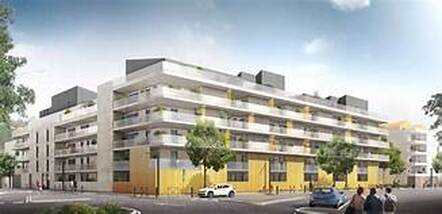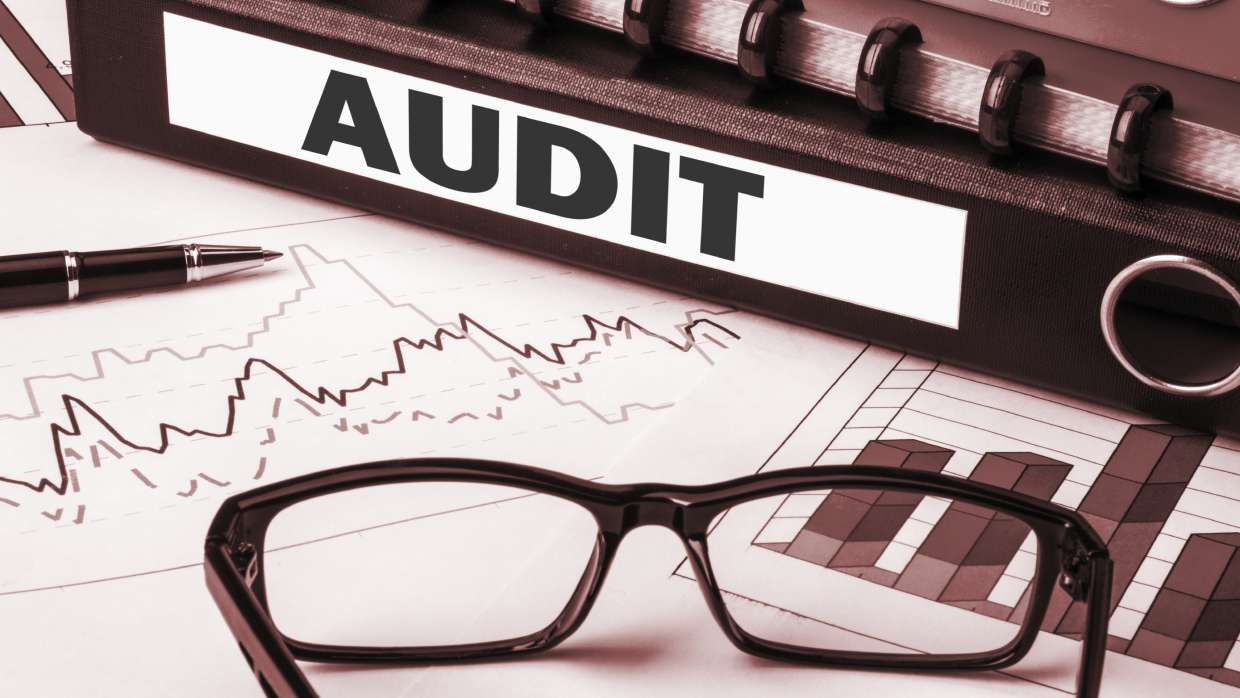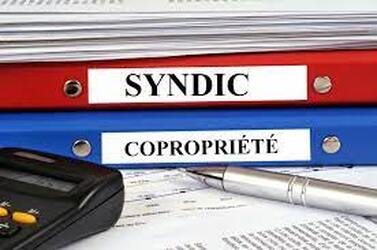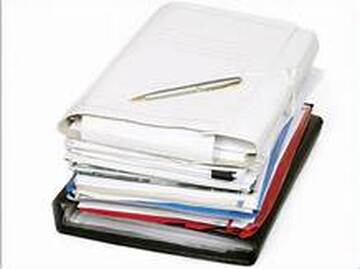O U R R E A L E S T A T E S E R V I C E S
“Coming together is a start, staying together is progress, working together is success.” » - Henry Ford
|
WELCOME
TO YOUR GATEWAY TO PEACE OF MIND ABOUT US GROUPE INFINITE is a property management company offering you a helping hand in your operations. You can count on our +25 years of experience and a complete range of services for condominium associations, apartment buildings, commercial buildings and more. |
SERVICES
French and English services, in the office, tele working, chrono working, management covering all aspects of finance - legal - building - customer service and more - turnkey or à la carte service - monthly or per year. Free emergency service 24/7. MISSION Offer a respectful, efficient, fast and courteous service, available 24/7, excellent value for money, work carried out according to your needs, your budget and your deadline. CUSTOMERS We have the privilege of serving to date a growing clientele of +39 buildings in the territory mainly in Montérégie, and expanding elsewhere. |
Consultation
Free 30-minute consultation service to assess your needs with no obligation on your part; contact us, for NPOs (condominium associations, etc.), appartment buildings, commercial buildings, etc.
Hiring
We are growing and are looking for qualified staff . More information at CAREER.
Want to take on new challenges? Contact us!
Want to take on new challenges? Contact us!
New
NEW PACKAGE AVAILABLE
Starting June 1st, 2024 we offer flexible and affordable property management packages for new clients; you have the choice, monthly, 3 months or yearly. Contact us for more information.
REFERRAL PROGRAM
Take advantage of a bonus with each reference you send us! Information
BIOGRAPHY
Receive your personalized biography! Information
Starting June 1st, 2024 we offer flexible and affordable property management packages for new clients; you have the choice, monthly, 3 months or yearly. Contact us for more information.
REFERRAL PROGRAM
Take advantage of a bonus with each reference you send us! Information
BIOGRAPHY
Receive your personalized biography! Information
Events and Training Calendar
|
EVENTS, TRAINING CALENDAR AND MORE!
Take advantage of our networking eveningS, of our trainings on line and/or live, and more to help you keep up with the new trends etc. gathering people that are passionnate about real estate. Don't miss! REBATE OF 30% on each 30th of each month! TAKE ADVANTAGE! |
Fundraising
|
SEMINAR AT SEA - FUNDRAISING
You are a Home Association/ Syndicat of co-ownership? You are a NPO; you can do a fundraising instead of asking a special contribution. Contact us for a free analysis of your situation. Register without obligation to our next seminar at sea and enjoy cruises in the South at advantageous prices where training in the field is offered, and where the profits go to the Syndicate (Non profit organization) upon request, within the framework of fundraising, information. Also available, a contribution in the form of a gift card. Information |
Property Management
|
PROPERTY MANAGEMENT - HOME ASSOCIATIONS - RENTAL REAL ESTATE MANAGEMENT - COMMERCIAL REAL ESTATE MANAGEMENT
In part or in full, at excellent value for money, depending on your budget and schedule, with a turnkey service such as: - Finance - Maintenance - Legal - And more Contact us |
ProBono Director
|
VOLUNTEER (PRO BONO) ADMINISTRATOR AT YOUR SERVICE
You are a Syndicate, a Board of Directors's administrator and are looking for an administrator to take over? You can count on us; we offer the service of volunteer administrator to Syndicates who make a request. Upon receipt of your request, we study your file and a decision is made as soon as possible. Our pro bono service is our commitment (from a professional) who volunteers our time and expertise for a cause of public interest. You are contacted via phone call or email. Contact us |
Audit
|
AUDIT OF CO-OWNERSHIP UNION IN DIFFICULTIES
For several years we have unfortunately seen more and more Unions in difficulty caused by a Board of Directors which does not administer its Union correctly, either through ignorance, or lack of time, or worse through bad intentions and/or misappropriation of funds. funds. Before you find yourself under government guardianship, contact us! The purpose of a Union audit is to verify that the Union complies, among other things: with the regulations in force (are we up to date with the laws?), draw up an inventory of the building (are the has the building undergone regular maintenance?), finances (do the financial statements reflect the situation well?), the state of mind that reigns in the building (are the co-owners in harmony or in a state of fear/nonchalance or downright ignorance of what is happening?), is there new blood (a new board of directors is desired by the co-owners?) etc., and to carry out a action plan for redressing the situation as quickly as possible; sometimes in a gentle way, sometimes in a less gentle way (case by case). If you are a co-owner and you have questions, or if you are an administrator who no longer knows or is confused, contact us |
Annual general meeting
Extraordinary general meeting
|
PREPARATION FOR THE ANNUAL GENERAL MEETING and/or EXTRAORDINARY GENERAL MEETING
You don't have time to organize and prepare for your Union's AGM? No problem, you can count on us. Upon receipt of the status of the situation and your needs, we will advise you and plan the meeting together. The information is compiled, prepared, verified and then sent to the co-owners (notice of meeting) within the time limits prescribed by law and can even chair the AGM on request. Contact us |
Upgrading your Declaration of Co-Ownerships
|
UPGRADING YOUR DECLARATION AND REGULATIONS VOTED AT THE ANNUAL GENERAL MEETING
Your Declaration of Co-ownership is like your Bible but it is not cast in concrete. It must be updated when there are new regulations passed at the AGM, new laws, etc. You can count on us to carry out the preparatory work of updating and putting everything in the Land Register; whether it's just one year old or 50 years old, our team will do what's necessary to give you peace of mind and afterward a notary/ lawyer will do the rest. Contact us |
Virtual Assistant
Bill 31 adopted
The National Assembly has – finally – adopted Bill 31, An Act to modify various legislative provisions relating to housing, and with it, the proposed modifications to articles 1070.2 and 1071 of the Civil Code which had been enacted by the bill 16.
As explained in the article on the Adoption of new amendments targeting the contingency fund and the maintenance log, these modifications will allow the government to adjust, in its regulations, the obligations "according to the characteristics of a building » both for establishing the maintenance log (1070.2 C.c.Q) and for carrying out the study of the contingency fund (1071 C.c.Q). The frequency of these studies, initially planned every 5 years, has also been relaxed since it is now up to the government to define this. Of course, it is difficult to know exactly what the characteristics of the building will be, but we can imagine that it will concern the size of the condominium, its height, the type of condominium (residential, residential and commercial, etc.) or still the existence of special features such as underground parking, elevators, etc. In any case, what must be remembered is that the government now has all the flexibility necessary to prepare its regulations.
New articles of the Civil Code of Quebec as enacted by Bill 31
(Unofficial drafting, reproduction of the texts proposed during the presentation of the amendments in the parliamentary committee).
1070.2. The board of directors has a building maintenance log drawn up, which describes in particular the maintenance carried out and to be carried out. He keeps this notebook up to date and has it revised periodically. The form, content and terms of keeping and reviewing the maintenance log, as well as the persons who can establish and review it, are determined by government regulation. The standards provided for in the regulations may vary depending on the characteristics of the building.
1071. The union establishes, based on the estimated cost of major repairs and the cost of replacing common areas, a liquid contingency fund available in the short term, allocated solely to these repairs and replacements. This fund must be partly liquid, available in the short term and its capital must be guaranteed. It is the property of the union and its use is determined by the board of directors. The board of directors obtains a study of the contingency fund establishing the sums necessary for this fund to be sufficient to cover the estimated cost of major repairs and replacement of common areas. This study is carried out in accordance with the standards established by a government regulation, which designates in particular the professional orders whose members are authorized to carry out these studies and determines how often a new study must be obtained by the board of directors. These standards may vary depending on the characteristics of a building. The amounts to be paid into the contingency fund are set on the basis of the recommendations made during the study of the contingency fund and taking into account the evolution of the co-ownership, in particular the amounts available in the contingency fund. Until the developer obtains the study of the contingency fund, the sums to be paid into this fund must correspond to 0.5% of the reconstruction value of the building. Source: RGCQ
As explained in the article on the Adoption of new amendments targeting the contingency fund and the maintenance log, these modifications will allow the government to adjust, in its regulations, the obligations "according to the characteristics of a building » both for establishing the maintenance log (1070.2 C.c.Q) and for carrying out the study of the contingency fund (1071 C.c.Q). The frequency of these studies, initially planned every 5 years, has also been relaxed since it is now up to the government to define this. Of course, it is difficult to know exactly what the characteristics of the building will be, but we can imagine that it will concern the size of the condominium, its height, the type of condominium (residential, residential and commercial, etc.) or still the existence of special features such as underground parking, elevators, etc. In any case, what must be remembered is that the government now has all the flexibility necessary to prepare its regulations.
New articles of the Civil Code of Quebec as enacted by Bill 31
(Unofficial drafting, reproduction of the texts proposed during the presentation of the amendments in the parliamentary committee).
1070.2. The board of directors has a building maintenance log drawn up, which describes in particular the maintenance carried out and to be carried out. He keeps this notebook up to date and has it revised periodically. The form, content and terms of keeping and reviewing the maintenance log, as well as the persons who can establish and review it, are determined by government regulation. The standards provided for in the regulations may vary depending on the characteristics of the building.
1071. The union establishes, based on the estimated cost of major repairs and the cost of replacing common areas, a liquid contingency fund available in the short term, allocated solely to these repairs and replacements. This fund must be partly liquid, available in the short term and its capital must be guaranteed. It is the property of the union and its use is determined by the board of directors. The board of directors obtains a study of the contingency fund establishing the sums necessary for this fund to be sufficient to cover the estimated cost of major repairs and replacement of common areas. This study is carried out in accordance with the standards established by a government regulation, which designates in particular the professional orders whose members are authorized to carry out these studies and determines how often a new study must be obtained by the board of directors. These standards may vary depending on the characteristics of a building. The amounts to be paid into the contingency fund are set on the basis of the recommendations made during the study of the contingency fund and taking into account the evolution of the co-ownership, in particular the amounts available in the contingency fund. Until the developer obtains the study of the contingency fund, the sums to be paid into this fund must correspond to 0.5% of the reconstruction value of the building. Source: RGCQ
Reports bills 16 and 141
|
LEGAL DOCUMENTS AND REPORTS
To receive your reports contact us Law 16 and Law 141 Two amendments, relating to Bill 16 (PL 16), target the contingency fund and the maintenance log of co-owned buildings, namely articles 1070.2 and 1071 of the Civil Code of Quebec. In both cases, the new articles provide that the standards may “vary depending on the characteristics of the building”. These modifications should therefore give the government more freedom to modulate the applicable rules and adapt them to the various realities of co-ownerships in Quebec, which do not form a homogeneous whole. Note also that the new article 1071 C.c.Q will leave it to the government to decide how often new contingency fund studies must be carried out, and will no longer impose a systematic deadline of 5 years. Remember that Bill 31 is still at the detailed study stage in parliamentary committee and that it has therefore not yet been adopted. On December 5, the government adopted Bill 16, on housing, which includes numerous provisions on divided co-ownership. This bill introduces several changes, therefore the resolution of conflicts, access to the register and the effectiveness of the assembly to combat the disinterest of certain co-owners. The reform also introduces two new major obligations: the study of provident funds and the maintenance log. Law 141 has profoundly modified the framework for co-ownership insurance. Several of its measures have already come into force and have an impact on unions and co-owners. Among others, points covered are; description of the private areas, self-insurance fund, presumption of fault and payment of deductibles. Report carried out only by a building professional (natural person holding a permit issued by a professional order who participates (through its advice) in the construction, expansion, renovation, repair or modification of buildings such as: technologist professional, engineer, architect). Building maintenance log book Article 1070 of the Civil Code of Quebec was amended by Bill 16 in December 2019. Article 1070.2 which was added provides that “the board of directors shall establish a maintenance log for the building, which describes in particular the interviews carried out and to be carried out. He keeps this notebook up to date and has it revised periodically. ". Must be done only by an engineer, or architect, or technologist. Register of renovations of private areas and Reference Unit “638. Article 1070 of this code is amended by adding, at the end, the following paragraph: “The union finally makes available to the co-owners a description private areas sufficiently precise so that the improvements made by the co-owners are identifiable. The same description can be worth for several parts when they have the same characteristics. " and more. |
New Bills
Bill 23
Since October 24, following the adoption of new law 23 (Law aimed at modernizing the notarial profession and promoting access to justice - Remote electronic signature of notarial acts), remote electronic signatures Notarial acts are only permitted in exceptional circumstances. In other words, the adoption of this measure means that we are back to the situation before the pandemic, barring exceptional circumstances. Subsequently, the Chambre des notaires du Québec issued directives relating to the criteria that must be taken into consideration by a notary to judge whether he is in an exceptional situation allowing the use of the remote electronic signature mechanism. These criteria being restrictive, signing a technological notarial act remotely can only be considered on rare occasions. A petition is currently circulating to ask the Minister of Justice of Quebec to amend new law 23 so that the signing of the technological notarial act remotely remains an option for citizens of Quebec, conditional on the request of the(les) party(ies), while respecting their interests, and according to the judgment of the notary, without restricting its use to an exceptional measure.
Bill 78
March 3, 2023 – The National Assembly of Quebec sanctioned on June 8, 2021 the Law mainly aimed at improving business transparency (Bill No. 78). This Bill makes changes to the Law on legal publicity of businesses. New responsibilities have thus been entrusted to the Quebec Enterprise Registrar (the “REQ”). On March 31, 2023, this new legislative framework will come into force and will establish new obligations relating to the publication of information by those subject to it, including co-owners' associations. The Government of Quebec has thus improved the information available in the REQ, while improving business transparency, strengthening public protection and contributing to efforts to combat tax evasion, money laundering and corruption. . Identity documents From now on, co-owners' associations will have to provide a copy of an identity document for current administrators declared to the REQ as proof of their identity and declare their date of birth. This obligation also applies to any new elected or appointed administrator.
Bill 25
The entry into force on September 22, 2022 of Bill 64, called Law 25, entitled Protection of personal data in co-ownership has provoked several questions from Unions and Managers. The adoption of Bill 25, An Act to modernize legislative provisions relating to the protection of personal information, positions Quebec at the forefront in terms of the protection of personal information. The scope of the modernization of laws in this area meets the expectations of Quebecers as well as the challenges posed by technological advances. The modifications resulting from Bill 25 promote transparency in particular among public bodies, businesses and provincial political parties as well as better control by citizens over their personal information. Other measures ensure better protection of their privacy, while taking into account today's technological reality.
Since October 24, following the adoption of new law 23 (Law aimed at modernizing the notarial profession and promoting access to justice - Remote electronic signature of notarial acts), remote electronic signatures Notarial acts are only permitted in exceptional circumstances. In other words, the adoption of this measure means that we are back to the situation before the pandemic, barring exceptional circumstances. Subsequently, the Chambre des notaires du Québec issued directives relating to the criteria that must be taken into consideration by a notary to judge whether he is in an exceptional situation allowing the use of the remote electronic signature mechanism. These criteria being restrictive, signing a technological notarial act remotely can only be considered on rare occasions. A petition is currently circulating to ask the Minister of Justice of Quebec to amend new law 23 so that the signing of the technological notarial act remotely remains an option for citizens of Quebec, conditional on the request of the(les) party(ies), while respecting their interests, and according to the judgment of the notary, without restricting its use to an exceptional measure.
Bill 78
March 3, 2023 – The National Assembly of Quebec sanctioned on June 8, 2021 the Law mainly aimed at improving business transparency (Bill No. 78). This Bill makes changes to the Law on legal publicity of businesses. New responsibilities have thus been entrusted to the Quebec Enterprise Registrar (the “REQ”). On March 31, 2023, this new legislative framework will come into force and will establish new obligations relating to the publication of information by those subject to it, including co-owners' associations. The Government of Quebec has thus improved the information available in the REQ, while improving business transparency, strengthening public protection and contributing to efforts to combat tax evasion, money laundering and corruption. . Identity documents From now on, co-owners' associations will have to provide a copy of an identity document for current administrators declared to the REQ as proof of their identity and declare their date of birth. This obligation also applies to any new elected or appointed administrator.
Bill 25
The entry into force on September 22, 2022 of Bill 64, called Law 25, entitled Protection of personal data in co-ownership has provoked several questions from Unions and Managers. The adoption of Bill 25, An Act to modernize legislative provisions relating to the protection of personal information, positions Quebec at the forefront in terms of the protection of personal information. The scope of the modernization of laws in this area meets the expectations of Quebecers as well as the challenges posed by technological advances. The modifications resulting from Bill 25 promote transparency in particular among public bodies, businesses and provincial political parties as well as better control by citizens over their personal information. Other measures ensure better protection of their privacy, while taking into account today's technological reality.
Strategic Alliances
|
STRATEGIC ALLIANCES with other management companies. Are you planning to retire or something? Contact us, we will take over your business and/or customers in a win-win situation for everyone.
|
Referral Program
|
REFERRAL PROGRAM
Do you have contacts who would be interested in our services? You refer a new client to us, and to say thank you, you receive $300! More information... |
Public holidays for 2024
- New Year - Sunday, January 1st
- Day after New Year's Day - January 2nd
- Easter - March 31st
- Victoria Day - May 20th
- Saint-Jean-Baptiste Day - June 24th
- Canada Day - July 1st
- Labour Day - September 2nd
- Thanksgiving Day - October 14th
- Remembrance Day - November 11th
- Christmas Day - December 25th




















